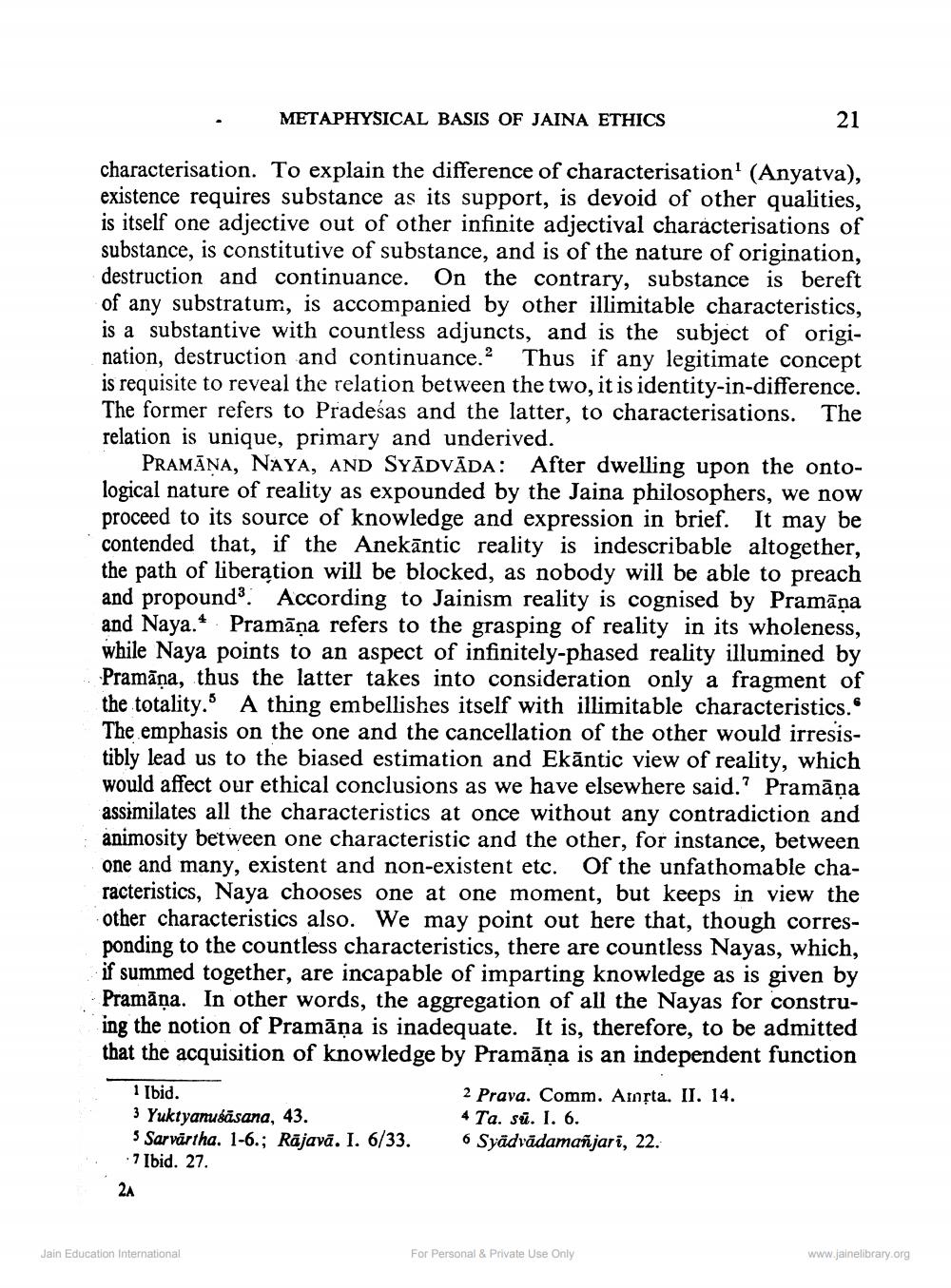________________
METAPHYSICAL BASIS OF JAINA ETHICS
characterisation. To explain the difference of characterisation1 (Anyatva), existence requires substance as its support, is devoid of other qualities, is itself one adjective out of other infinite adjectival characterisations of substance, is constitutive of substance, and is of the nature of origination, destruction and continuance. On the contrary, substance is bereft of any substratum, is accompanied by other illimitable characteristics, is a substantive with countless adjuncts, and is the subject of origination, destruction and continuance.2 Thus if any legitimate concept is requisite to reveal the relation between the two, it is identity-in-difference. The former refers to Pradeśas and the latter, to characterisations. The relation is unique, primary and underived.
PRAMANA, NAYA, AND SYADVADA: After dwelling upon the ontological nature of reality as expounded by the Jaina philosophers, we now proceed to its source of knowledge and expression in brief. It may be contended that, if the Anekantic reality is indescribable altogether, the path of liberation will be blocked, as nobody will be able to preach and propound3. According to Jainism reality is cognised by Pramāņa and Naya. Pramāņa refers to the grasping of reality in its wholeness, while Naya points to an aspect of infinitely-phased reality illumined by Pramana, thus the latter takes into consideration only a fragment of the totality. A thing embellishes itself with illimitable characteristics." The emphasis on the one and the cancellation of the other would irresistibly lead us to the biased estimation and Ekantic view of reality, which would affect our ethical conclusions as we have elsewhere said.' Pramāņṇa assimilates all the characteristics at once without any contradiction and animosity between one characteristic and the other, for instance, between one and many, existent and non-existent etc. Of the unfathomable characteristics, Naya chooses one at one moment, but keeps in view the other characteristics also. We may point out here that, though corresponding to the countless characteristics, there are countless Nayas, which, if summed together, are incapable of imparting knowledge as is given by Pramana. In other words, the aggregation of all the Nayas for construing the notion of Pramāņa is inadequate. It is, therefore, to be admitted that the acquisition of knowledge by Pramana is an independent function
1 Ibid.
3 Yuktyanusāsana, 43.
5 Sarvärtha. 1-6.; Rājavā. I. 6/33.
7 Ibid. 27.
2A
Jain Education International
2 Prava. Comm. Amṛta. II. 14.
4 Ta. su. I. 6.
6 Syādvādamañjarī, 22.
21
For Personal & Private Use Only
www.jainelibrary.org




